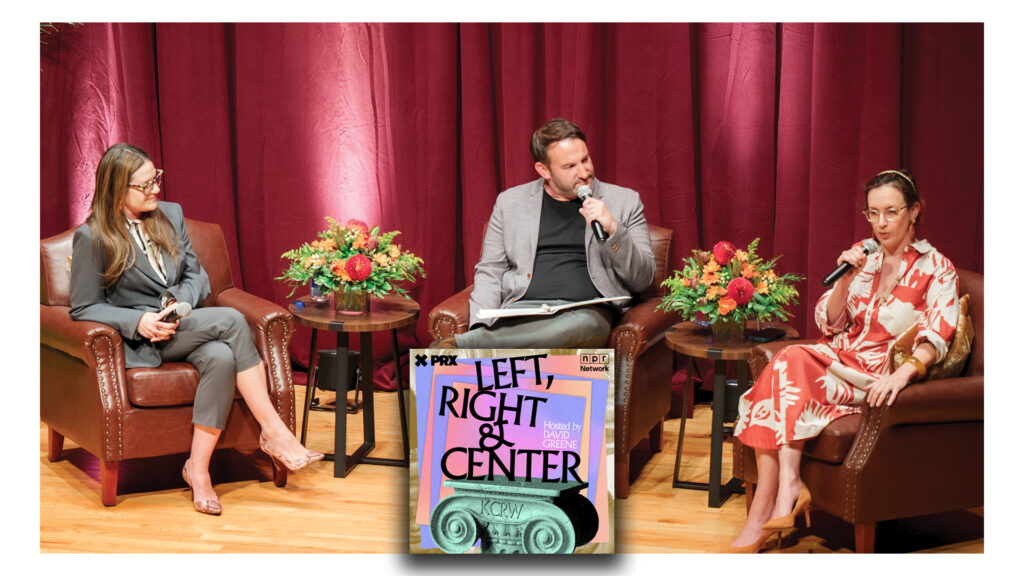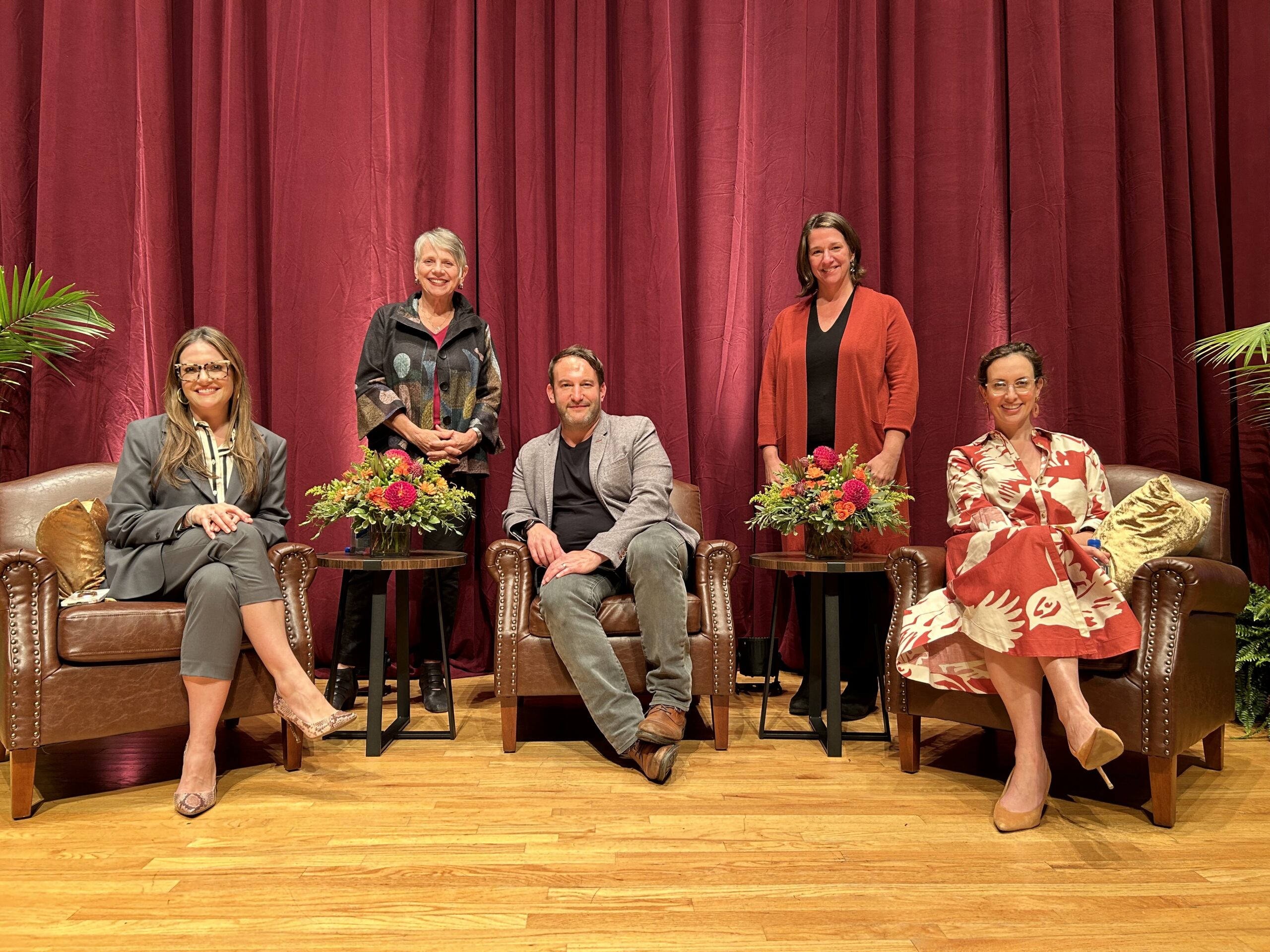Guest post from Steinman Institute intern Lily Andrey
On Wednesday, October 9th, The Steinman Institute and Franklin & Marshall College hosted a live recording of KCRW’s Left, Right, and Center hosted by David Greene. The Lancaster native, joined by his co-hosts Sarah Isgur and Nomiki Konst, touched on relevant political topics of the nation, Pennsylvania, and even Lancaster. The podcast intends to give viewers both sides of a discussion respectfully and honestly. Senior editor at The Dispatch, Isgur sits on the right side of the table while Konst, a political activist and former 2016 DNC Platform Committee Member and Delegate, sits on the left.
Left, Right, and Center and The Steinman Institute are connected by more than just a geographic relevance of Lancaster: both platforms aim to facilitate tough conversations while understanding support of local news and information as an integral part of community and democracy. The podcast weaves these two initiatives seamlessly.
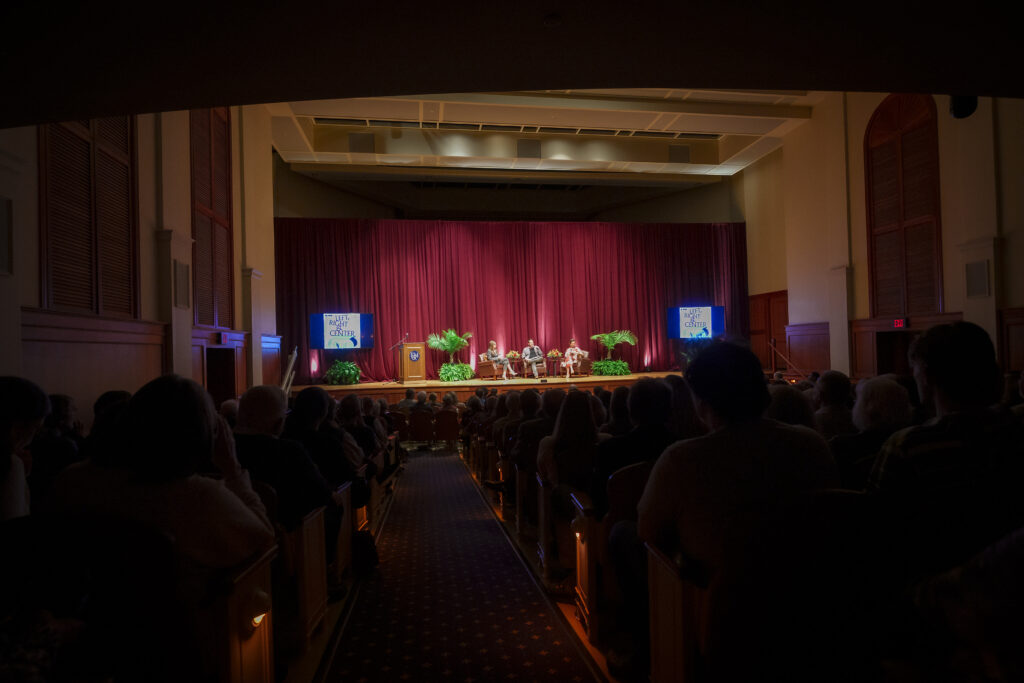
The packed auditorium consisted of both community members and F&M students. The stage set with three large, upholstered chairs, flowers, and a red curtain background created an appearance more reminiscent of a talk show than a lecture. The casual, approachable atmosphere aided in the comfortability of the educated, yet informal discourse about to unfold. Greene emphasized his excitement of recording at the college as his mother was a professor and he spent most of his childhood roaming the campus.
The conversation began with Teamsters, more specifically how the union refused to endorse a candidate. This raised the question of how important is a union endorsement, and what defines the modern “working class” vote. Then the group shifted to a more Pennsylvania-focused issue: fracking. Greene outlined how fracking is an almost negligible percentage of the PA economy yet has evolved into a tremendous buzzword in the current election. The recording ended with a more localized issue of the culture war that ensued over “A Drag Queen Story Hour” last spring. The hosts questioned to what extent social media enflamed the threat. And, how Americans are supposed to cope with situations they are uncomfortable with, without tuning each other out.
The most memorable insight shared by the hosts occurred after the recording. F&M students had the floor to ask questions, evoking honest, meaningful, and genuinely useful responses from Greene, Konst, and Isgur.
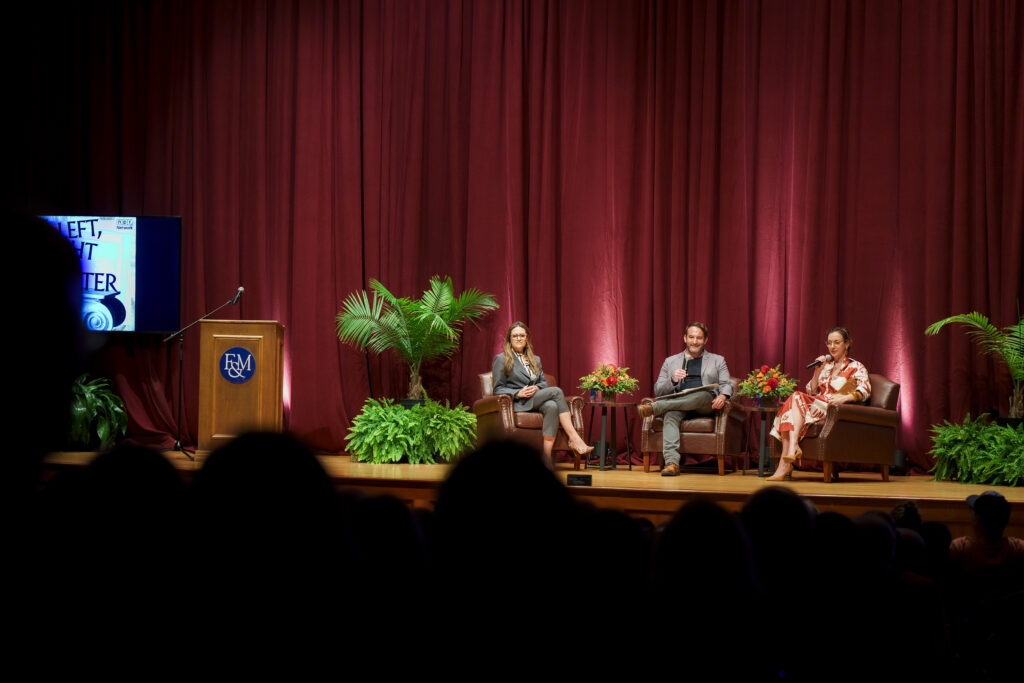
One student asked how the group remains calm discussing such personal political issues and Isgur answered she always deflects with questions. If she is too passionate about a topic to articulate her argument, she makes her partner share their argument instead. But realistically she admitted, sometimes you will just lose it, and that is the nature of the game.
Another student asked “What keeps them motivated to be a different voice when they don’t have to be” in a political world that retreats to echo chambers and polarized discussions. The unanimous, short answer: echo chambers are boring. Konst explained how she had done it, and there is no thrill in surrounding yourself with people who all generally agree, but disagree on small, pointless details.
In her eyes, conservative students receive a “dual degree” and become “multilingual” when they can articulate their own opinions, as well as their opposition.
The most thought-provoking advice Isgur offered was the concept of a “dual degree”. She explained that liberal students who attend small, liberal arts colleges do themselves a disservice when they surround themselves with purely like-minded individuals. In her eyes, conservative students receive a “dual degree” and become “multilingual” when they can articulate their own opinions, as well as their opposition. Isgur was proud of her own “dual degree” with her liberal childhood and college experience informing her current conservative leanings, as it allows her to convincingly sit in “both chairs onstage”.
Admittedly one guest, not quite old enough to carry an F&M ID yet, stole the show. A young boy, 12 years old, sitting in the front row, had a question of his own. He explained how he gets into political arguments with his friends at school– and they almost always become arguments– but they always silence the discussion by telling him “If you can’t even vote yet, why do you care so much?” He wondered how he should reply. The hosts explained there is no shame in being politically conscious and he should take advantage of his passion because it likely “will never go away”, as it did not for them.
I found my views being challenged with the arguments Isgur made more than anyone else onstage.
If we kept the motif of hypothetical degrees going, I think I might have my masters in “liberal skepticism of the conservative at the dinner table.” Yet, I found my views being challenged with the arguments Isgur made more than anyone else onstage. However, one metaphor that did not sit well was the comparison of AR-15 rifles to drag queens — it was a bit of a stretch. I understood the attempt, but the execution was off. Regardless, the value of live conversation is imperfection and not letting it invalidate a conversation’s entire content, a lesson often forgotten.
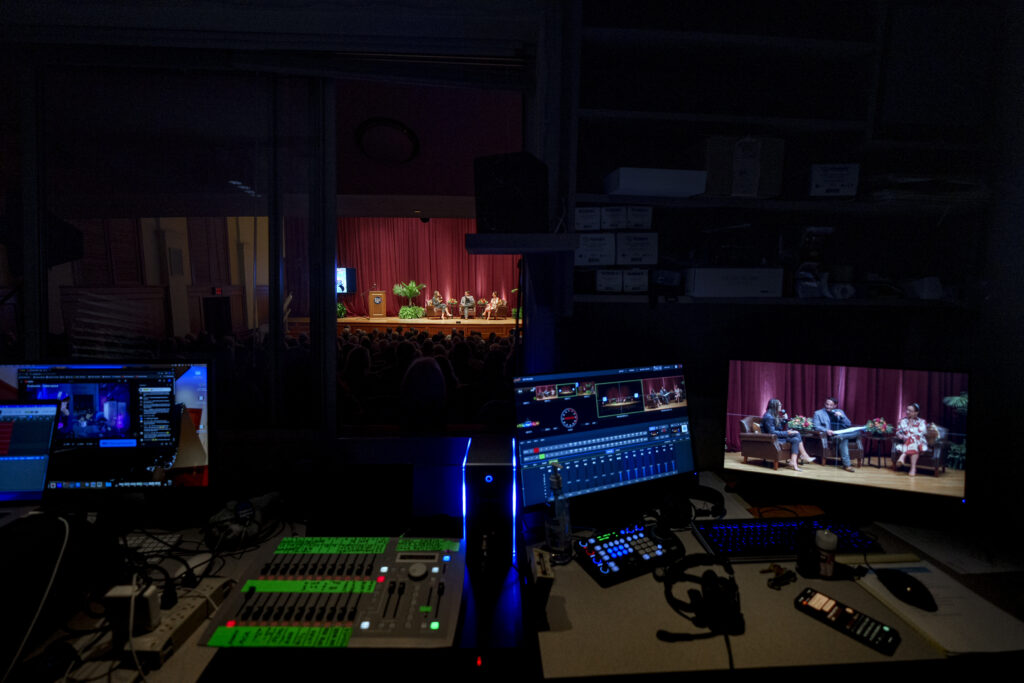
Left, Right, and Center suggests that maybe the problem with our modern political discourse isn’t that we can’t disagree, it’s that we refuse to engage with misinformation. Too often it masquerades as fundamental conservative thought. As a young voter, it was so refreshing to listen to a conservative voice that did not elicit immediate skepticism. The podcast gives young Americans a chance to imagine what political discourse sounded like when the Party consisted of fewer Marjorie Taylor Greenes and more John McCains.
Can we sit at opposite ends of the table and still be nice? Left, Right, and Center reminds us yes, even in our current political landscape, you can. By dedicating the final five minutes of the episode to “Rants and Raves”, a space to share both the apolitical highs and lows of the hosts’ lives, listeners are reminded of their humanity. Even if we disagree on the geopolitics of fracking, we can all agree that a parent deserves a round of applause for their child finally sleeping through the night.
